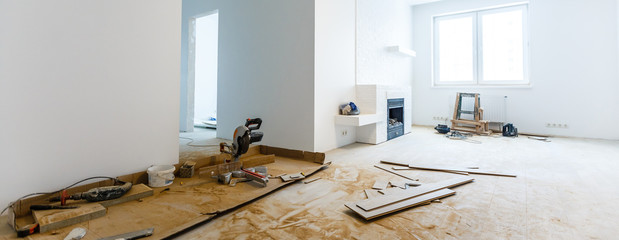After living with a dated home for years, many homeowners are ready to put their remodeling plans into action. But before a single hammer swings, it’s important to understand some key aspects of the process.
First, make sure that your contractor is experienced in both design and construction. They should have a comprehensive portfolio of past projects to show you. Talk to an expert by clicking here at https://jrcsi.com/.
 Building A Plan
Building A Plan
If you’re thinking about home remodeling, it’s important to build a plan before getting started. This will help you define goals, examine your budget and accurately calculate costs so that the project stays within your desired budget. It will also ensure that all of your wants and needs are met during the renovation.
You’ll need to decide what projects are most important to you and which ones you can afford to complete on your own versus which tasks require the services of a professional. It’s also helpful to speak with friends, family, and neighbors who have completed home renovations or have lived through the process to get their advice and recommendations.
Once you’ve decided on your goals, you’ll need to determine what type of financing you will use to pay for the project. The safest option is to save a chunk of money in advance and then use that to fund your renovation. This will prevent you from taking on debt and will make it easier to pay off your loan once the project is completed.
Another option is to secure a construction loan. This type of financing is available to homeowners and it offers competitive rates. It’s best to choose a lender that is experienced in this type of financing and will work with you throughout the process. A good lender will provide you with all of the information you need to choose the right loan for your project.
When it comes to the order of your home improvement projects, it’s best to start with any structural improvements and then move on to the cosmetic elements. This will allow you to enjoy your newly remodeled space as soon as possible. This includes things like flooring, cabinets, and fixtures. You may also want to include kitchen and bathroom appliances at this time. If you’re unsure of the best order for your remodel, discuss it with your builder.
Getting Permits
In most cases, a permit is required for any work that affects structural changes, plumbing, electrical wiring, or natural gas systems. While every city has different rules, certain themes emerge to clarify permitting requirements. Generally, these focus on public and personal safety, as well as structural integrity.
Many homeowners avoid the permit process, hoping to save money and time. Unfortunately, avoiding the permitting process isn’t only expensive; it can also be dangerous. In some cities, unpermitted home renovations can cause a homeowner to be fined. Furthermore, the value of a home can be affected if the unpermitted work is spotted by an inspector.
Getting permits can take weeks, especially if there is an extensive project in the works. Those who don’t want to wait can hire a professional to handle the process for them. A good contractor will know the ins and outs of permitting requirements in your area, so they can get you a permit quickly and without too much hassle.
If you’re thinking about skipping the permit process, it’s important to consider how it will impact your ability to sell your home. If a potential buyer spots unpermitted work while touring your home, they may back out of the deal. Additionally, your homeowner’s insurance may not cover any damage that is caused by unpermitted work.
The best thing you can do is talk to a home remodel expert before beginning any work. They’ll be able to tell you whether or not you need a permit and, if so, how long the process will take. They’ll also be able to assist you with the rest of the home remodeling planning and scheduling process.
There are some workarounds to the permit process for smaller renovations. For example, if you swap out laminate countertops for granite and don’t touch the plumbing or electrical, you probably won’t need a permit. In addition, some communities have inspectors who offer courtesy inspections to homeowners for a fee. This can help you determine if your remodel is a good fit for your property.
Setting A Budget
When it comes to home improvement, it’s important to start with a realistic budget. Getting quotes from contractors early in the process can help you avoid overpaying, or getting low-quality work. Be sure to ask each contractor about their fees and materials costs. While a lower price is tempting, it’s often worth paying extra for a professional that you can trust to do good work and will keep your project within its original budget.
You’ll also want to consider whether you need a permit or inspection for your renovation. These can add up, especially if you’re doing any electrical or plumbing work.
It’s also essential to separate your wants and needs. What is your ultimate goal for the home renovation? Are you looking to increase your home’s resale value or just make it more comfortable for you and your family? Keeping this goal in mind can help you decide which projects are the most important and which ones can wait.
Once you’ve decided which projects to focus on, you’ll need to get your calculator out and do some math. This is where you’ll need to figure out exactly how much each project will cost and how long it will take. Taking the time to do this research upfront will help you stay on track with your budget throughout the entire remodeling process.
Another important step in the planning phase is creating a contingency fund for unexpected expenses. Aim to set aside at least 3-5% of your overall budget for this purpose. This will give you peace of mind knowing that even if something goes wrong during the remodel, you’ll still have money to cover it.
Finally, you’ll need to determine how you will finance your renovation. If you’re planning on selling your home in the future, it may be worth waiting to complete any major renovations until you sell it. However, if you’re committed to staying in your home for the foreseeable future, it can be well worth it to spend money on upgrades that will improve the quality of life and boost resale value.
Getting Started
Home remodels can be an exciting and rewarding experience. However, it is important to be aware of the risks and challenges involved with this type of project. Getting the proper guidance from experts can help your renovation process go smoothly and minimize the impact on your everyday life.
Start With A Plan
One of the most important steps in any home remodeling project is to make a detailed, written remodel design plan. This is a document that will outline the scope of work for each phase of the project, including timelines and costs. It is important to set a budget at the beginning of the planning stage and stick to it. Having a firm understanding of the cost of your home renovation will help you make wise decisions about what fits in and what doesn’t.
You should also know how you plan on financing the home remodel, whether through savings, a line of credit or loan from a bank, a mortgage refinance, using retirement funds, or even a construction loan. It is important to discuss these options with your family and trusted financial advisers before making any decisions. You will also want to consider adding a builder’s risk insurance to your homeowner’s policy, which will protect your home from damage during construction.
Hire A Professional
The most important step in a whole-house remodel is hiring the right contractor for the job. Do your research and ask for recommendations from friends and family, or check online reviews. Once you’ve narrowed down the list, schedule consultations with each contractor to talk about your project and get a quote.
It’s not always practical to remodel the entire house in one go, so it’s a good idea to prioritize which areas of the home you want to tackle first. This will help to prevent you from feeling overwhelmed by the project and possibly putting it on hold. Kitchens and bathrooms are often a great place to begin, as they are usually high-use areas.
There are many reasons to remodel your home, from changing out outdated colors and fixtures to improving a space that isn’t working for your lifestyle. Regardless of your motivation, these six steps will help you plan and execute a successful home renovation.
